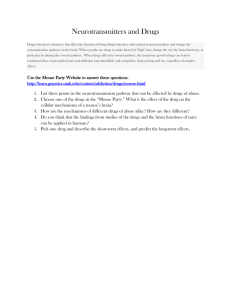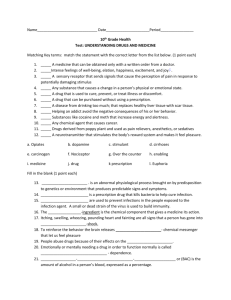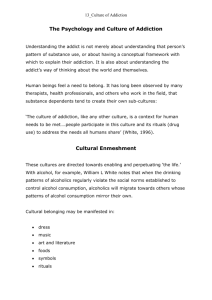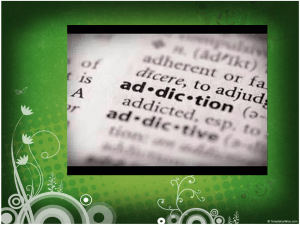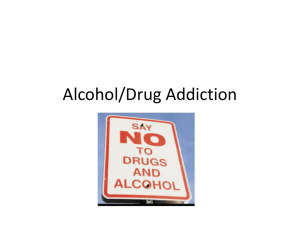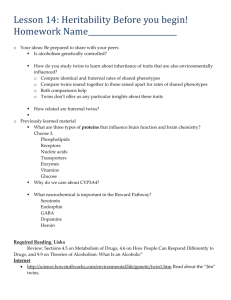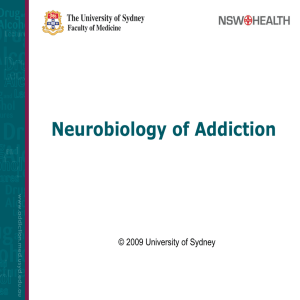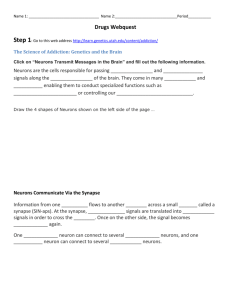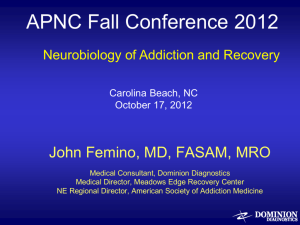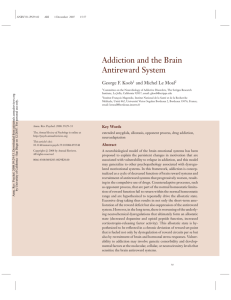the role of genetics in addictions
advertisement
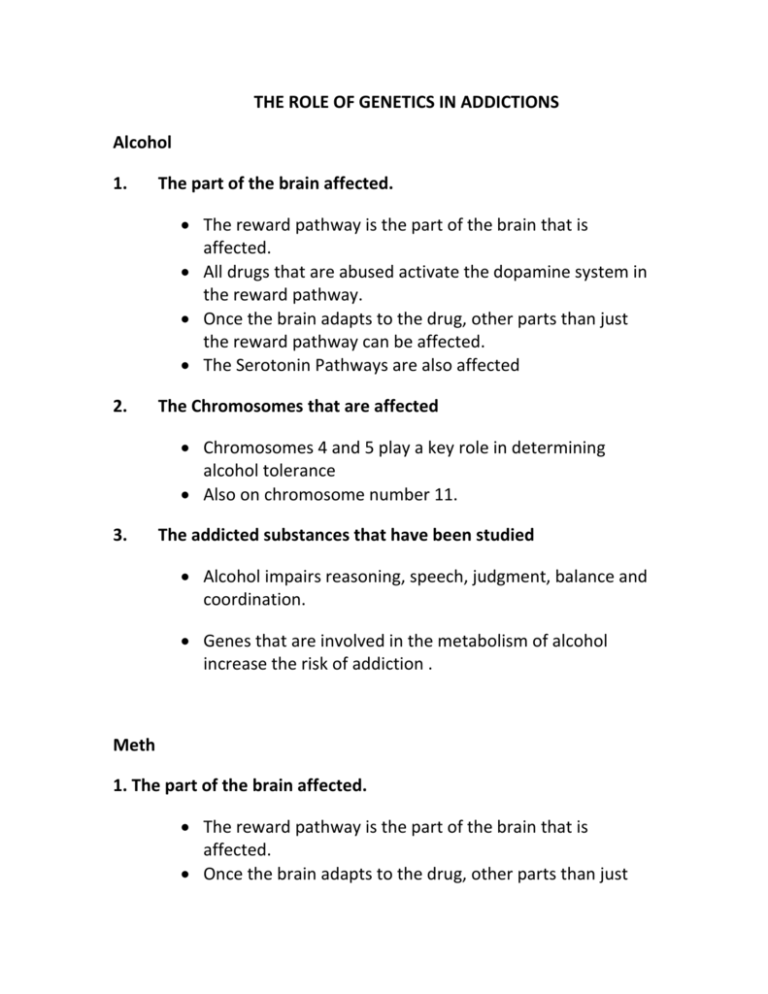
THE ROLE OF GENETICS IN ADDICTIONS Alcohol 1. The part of the brain affected. The reward pathway is the part of the brain that is affected. All drugs that are abused activate the dopamine system in the reward pathway. Once the brain adapts to the drug, other parts than just the reward pathway can be affected. The Serotonin Pathways are also affected 2. The Chromosomes that are affected Chromosomes 4 and 5 play a key role in determining alcohol tolerance Also on chromosome number 11. 3. The addicted substances that have been studied Alcohol impairs reasoning, speech, judgment, balance and coordination. Genes that are involved in the metabolism of alcohol increase the risk of addiction . Meth 1. The part of the brain affected. The reward pathway is the part of the brain that is affected. Once the brain adapts to the drug, other parts than just the reward pathway can be affected. (Neutrons) 2. The Chromosomes that are affected Chromosome number 11 is affected. 3 .The addicted substances that have been studied Some of the street names of methamphetamine are crank, chalk, ice, and speed. Meth has a strong affect of the nervous system and brain. Marijuana 1. The part of the brain affected. The reward pathway is the part of the brain that is affected. 2. The Chromosomes that are affected Chromosome 17 is affect by use of Marijuana 3. The addicted substances that have been studied Some of the street names of Marijuana are weed, grass, Mary, and hash. Weed affects your attention span, coordination, and it can impair your memory. 4. Research being done to help combat addiction Finding new medicines that can help reduce the cravings and prevent return. Trying to target proteins in the brain that control the perception of pain, reward and mood. 5. Include statistics of addiction in families. When looking for “addiction genes” scientists look for biological differences that could make someone less or more vulnerable to addiction. There is not one single addiction gene. Its harder for people with certain addiction gene types to stop once they have started. Scientists make pedigrees to see if the trait has a genetic component. Addiction is influenced by your environment and by multiple genes.
